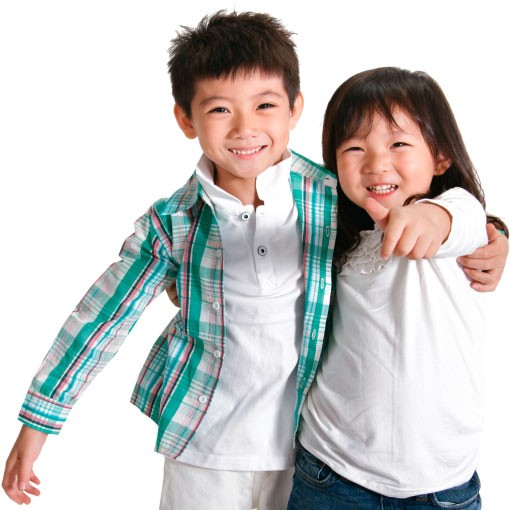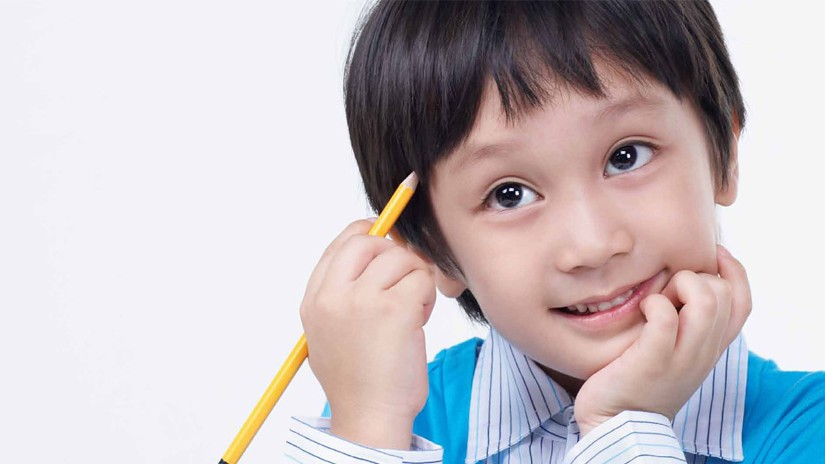
There are often times which require collective contributions in accomplishing shared goals, especially in the situations which may not be possibly handled by the actions of working alone. Our students’ abilities to organise and participate in teamwork will be enhanced by the experience of working with others, by making contributions, and by accepting and adopting suggestions offered by other team members.

Anger is an acceptable and normal feeling for everyone in which it is possible to learn to express the negative emotions in a more appropriate manner. It is also important to develop the ability to detect the emotional states of others. The development of such sensitivity will enhance each child’s willingness to negotiate social contracts with peers, friends and family members across a wide range of ever changing situations.

Children who feel good about themselves will often express their feelings with confidence and being more able to solve problems, tackle stress, and accept responsibility for their actions. This module aims to enhance or maintain the levels of self-esteem by allowing students to accept their strengths and weaknesses in order to make a variety of effective choices across different situations.

The aims of this module are threefold: Firstly, to enhance each student’s ability and willingness to read a variety of texts, and to pro-actively seek opportunities to do so. Secondly, to develop the ability to discriminate between pieces of information in order to extract significant data features for future memory and action. Thirdly, students will increase their sensitivity to both the formal structural rules of grammar, and to use such linguistic knowledge to construct coherent accounts of their ideas, thinking strategies and conclusions, for others to share.

The aims of this module are threefold: Firstly, to enhance each student’s ability to determine, identify, gather and filter the most appropriate body of information (from amongst distractors) which may be relevant to the problem of interest. Secondly, to learn to recognise, find and select the most appropriate methods or procedures for implementation in solving different types of problem. Thirdly, students will increase their ability (and form the habit) to actively ‘stop and think’, and to choose from amongst multiple alternative solutions, and to identify similarities and differences between the immediate problem situation and those previously encountered.

The aims of this module are sixfold: Firstly, to enhance each student’s understanding of their concepts of number and numerical value(s). Secondly, to develop the ability to perform numerical operations. Thirdly, students will more easily increase their respective understandings of quantification, and of their generalisation of numerical operations to new contexts. Fourthly, students will consolidate their ability to identify different shapes, layouts and spatial contiguities, and to form significant mental maps, navigation plans and perspective models of reality in their ‘mind’s eye’. Fifthly, to significantly improve and continually practice the re-representation of geometric spaces and their contents, spatial relationships and spatial reasoning. Lastly, students will develop a keen ability to design and generate a variety of ways to represent (and re-represent) any given data in graphical forms, and an advanced understanding of how to read tables and graphs as may be produced in support of particular arguments and conclusions.

The learning objectives for this module are to enhance students’ critical and creative reasoning abilities, enabling each thinker to develop the most efficient identification and use of argument in order to determine the truth or validity of any given conclusions. Together with their repeated exposure to novel premise/conclusion sets, multiple representations and reasoned exploration of alternative interpretations of stimulus data (rather than mere descriptions of them), students will come to develop efficient, consistent use of their reasoning skills appropriate to the avoidance of their more natural tendency to draw conclusions based upon unnecessary (and often unwarranted) assumptions. Instead, students will become better able to recognise, categorise, and hierarchically organise, the most critical components of situations, events and relevant data derived from any number of social or academic sources, in order to better process all of the information available to them (to ‘reason through’) for the drawing of excellent conclusions via smart critical reasoning.

The aims of this module are threefold: Firstly, to enhance each student’s ability to detect, identify, evaluate and question the validity of any given facts and supposedly relevant information. Secondly, students will learn to recognise the most appropriate use of factual information for the purposes of argument construction for coherent, critical reasoning. Learning such a skill will in turn facilitate appropriate transfer of newly derived knowledge as may pertain to novel, yet related, challenges of increasing levels of difficulty. Thirdly, students will increase their ability (and desire) to pro-actively engage in creative explanatory thinking, and dynamic interactions with the world of objects and events, in such a way as to ‘automatically’ generate alternative explanations and answers to both solved and unsolved problems.

Socio-personal competency is another cornerstone of every baby’s interactivity with people. This module involves various programs to develop the essential interpersonal skills that every baby requires. These programs include confidence building exercises and interactive communication sessions to ensure that the babies’ socio-emotional intelligence is at its developmental pinnacle.

A baby’s interaction to the environment requires a myriad of agile body movements. This module aspires to capitalize the time-frame where a baby’s mobility, flexibility and balance could be molded for the purpose of building a strong physique and a controlled endurance with physical vitality.



